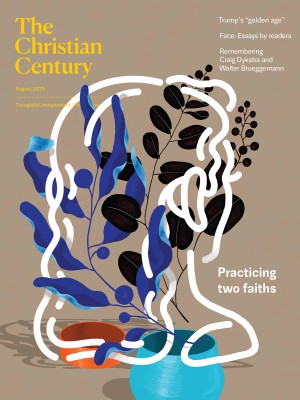If I had to choose one word to describe the suburban Texas Christianity that pushed me from faith as a teenager, it would be easy: judgmental. As a closeted queer kid growing up during the same-sex marriage debates, I found the behavior of Christians around me cruel but also almost absurd. In my hometown, Houston, I saw up close the struggles that homeless people, undocumented immigrants, and poor families faced. How could any sensible person think LGBTQ families were worth the church’s attention? Did the world really need more judgment?
As I got older, though, I realized that judgment doesn’t have to be bad news. Passages like Isaiah 1 challenge our simplistic, earthly view of judgment with one more freeing than my teenage self could have ever imagined. Far from being about anger or hatred, God’s judgment is the other side of love; far from papering over injustice, God’s judgment defends the oppressed, the orphan, and the widow.
Read our latest issue or browse back issues.
The crux of Isaiah 1 is its call to judgment in verse 18: “Come now, let us argue it out, says the Lord.” Other translations have “let us settle the matter” (NIV), “let us reason together” (KJV), “let us debate your case” (NASB). There are two important facts about the Hebrew word here, both difficult to render in English: it is a legal metaphor for judgment, but it is also collaborative. Think of a judge working together with the defendant, not merely imposing a sentence. We find the same Hebrew word in Job 13:3, when Job calls out, “I desire to argue my case with God.” Job wants to come to an understanding with God, not to have simple answers imposed on him. It isn’t like a modern-day court, where the jury renders a guilty verdict and the judge passes a sentence. Judgment is a two-way street, not a final proclamation.
This is God’s judgment in Isaiah 1: not a final condemnation or approval, but ongoing refashioning. “Cease to do evil,” God says in the prophet’s vision. “Learn to do good.” Learning takes time, marking a continual process through which we become better, more in line with who God created us to be. And the good to learn is tangible: “rescue the oppressed; defend the orphan; plead for the widow.” When we are convicted and we realize our wrongdoing, we ought to live better, to take the hard steps to put our learning into practice.
Eagle-eyed readers will note that the NRSVue has made a subtle but important change over the old NRSV here, changing verse 18’s statements into questions: “If your sins are like scarlet, will they become like snow? If they are red like crimson, will they become like wool?” The questions remain open. God calls us into repentance, giving us the chance over and over again to right our wrongs. It is our choice whether we answer that call.
In the meantime, pious acts mean nothing without just acts. Judgment exposes sin, whatever holiness it masks itself in. “What to me is the multitude of your sacrifices?” asks God. What use are prayers, incense, all the sacred pomp we can muster, if there is not goodness behind them? I don’t think this passage condemns ritual. Instead it is an indictment of a whole mindset, one that is so caught up in displays of faith that it forgets the living, breathing ethic animating them.
We might think of Christian nationalists who pay lip service to “Christian values” but reject their migrant neighbors—or progressive churches with “all are welcome” signs that shut their doors to the homeless. I think of the words of 1 John: “Those who do not love a brother or sister, whom they have seen, cannot love God, whom they have not seen” (4:20). Loving God without loving neighbor is an impossibility. God’s love and justice are not two different things. This is the classical insight of divine simplicity: God is one, all-love, and all-justice alike. God’s love is God’s justice and God’s justice is God’s love. We cannot partition away theology, liturgy, and the actual work of faith as it is lived out. If we do not have genuine, concrete love to back up our faith, it might as well be for nothing.
Isaiah’s opening ends with a dire warning: “If you are willing and obedient, you shall eat the good of the land, but if you refuse and rebel, you shall be devoured by the sword.” Typically we read verses like these and think of external punishment, God’s wrath in the form of an outside enemy. But Isaiah doesn’t say whose sword will do the devouring, and so we face the possibility that, just maybe, it’s our own. After all: live by the sword, die by the sword. When called into judgment, if we reject the chance to change for the better we are only condemning ourselves.





